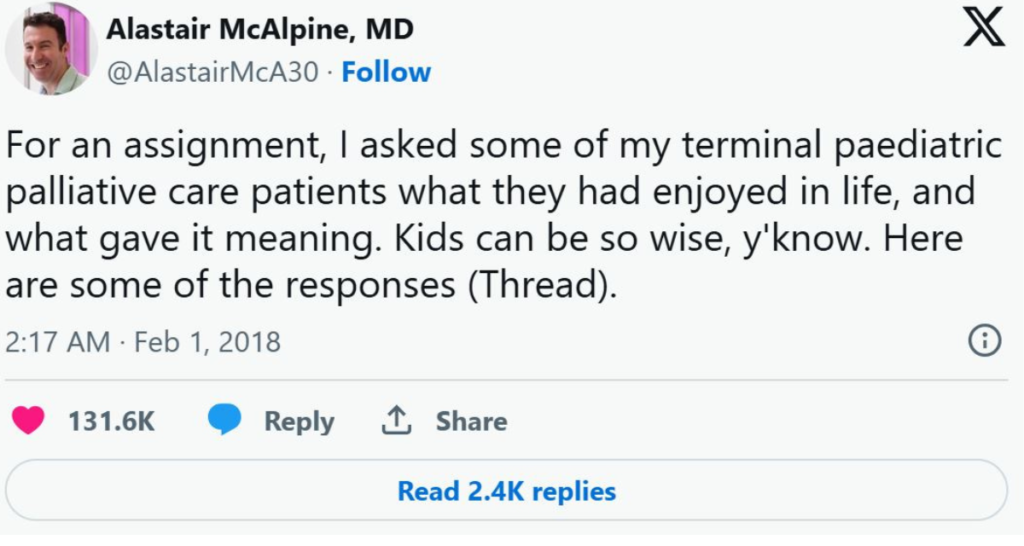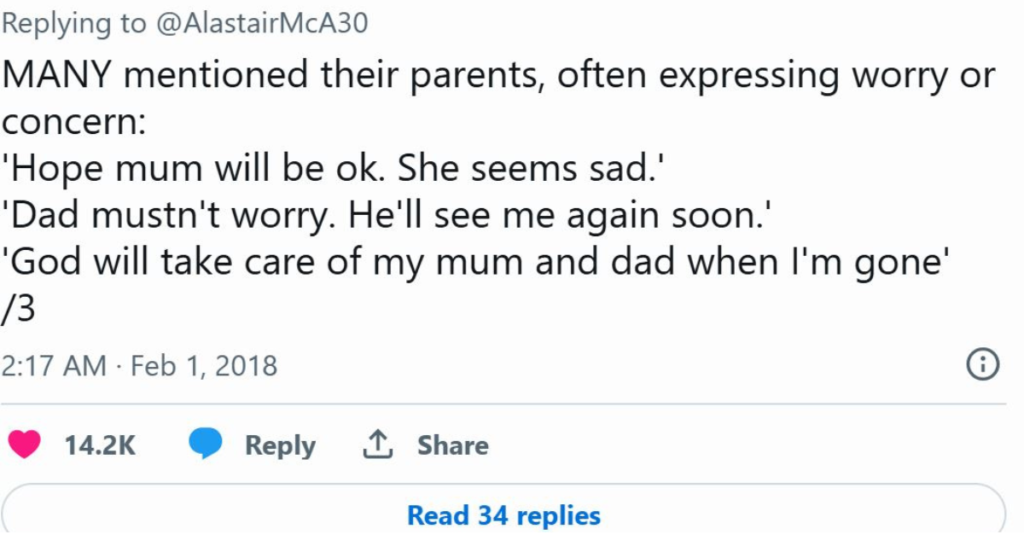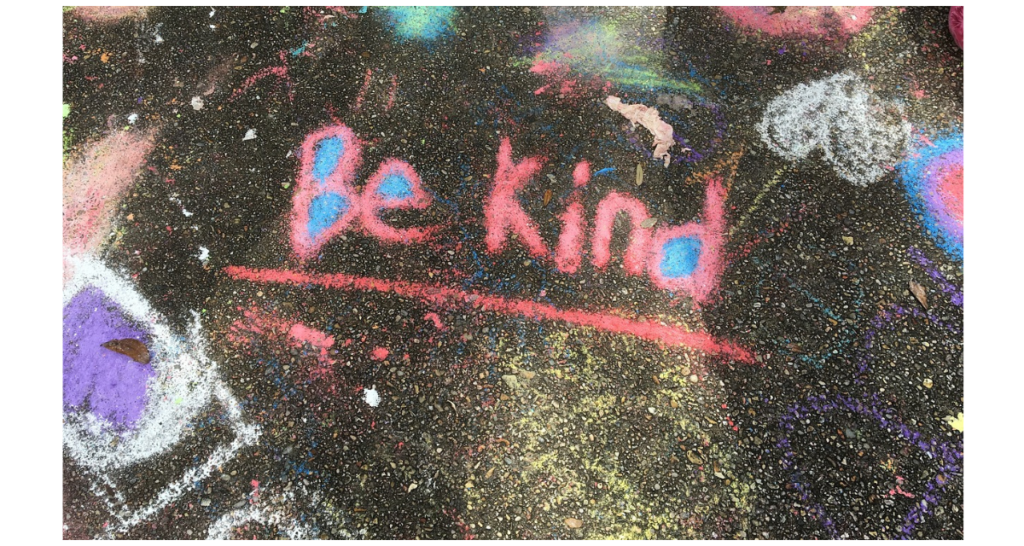Getting caught up in the hustle and bustle of life is easy. As a result, people often forget to savor the most precious of life’s moments. However, Alastair McAlpine, a physician in Cape Town, South Africa, has shared a beautiful reminder, sharing advice from terminally ill children.
Attitude of the Terminally Ill

Dr. McAlpine is a compassionate, if not brave soul, providing comfort to children on palliative care. Essentially, these children are terminally ill, meaning there’s no cure for what ails them. It’s his job to provide them with emotional and physical comfort, ensuring they pass with peace and dignity. As part of his degree’s curriculum, the class was asked to evaluate “the attitudes of my little patients towards life. I asked some of them what gave them joy and meaning.” The doctor explained. And their answers may serve as a reminder to others not to take life’s challenges too seriously.
Adorable Reminders from the Terminally Ill

The doctor shared a thread of responses on February 1, 2018, in which he interviewed his terminally ill pediatric patients. “I decided to share some of the children’s responses on Twitter, to provide some perspective to the fractiousness that is so prevalent there.” He wrote. “The response was overwhelming, to say the least (my thread has been retweeted nearly 100,000 times).” Dr. McAlpine shared the children’s responses when asked about their “attitudes toward life.” Firstly, he pointed out that “the kids were not hung up on” material possessions. Rather they prioritized things that can’t be bought. The doctor also explained what his personal “takeaway” was.
The Doctor’s Takeaway

“The happiest, most meaningful moments were simple ones that did not require vast sums of money or effort to attain, but instead embraced the importance of human connection.” He wrote. “It was also surprising how frequently the so-called small things were the ones that turned out to have enormous significance at the end.” Additionally, he shared the most moving points made by the terminally ill children he interviewed.
1. Family First (And Pets Count)

Countless children responded the most important things in life are to laugh, play, and spend time with pets and family. Conversely, explaining their “only regret” was they didn’t get to spend more time with the people and pets they love. Here are a few responses directly from the brave terminally ill children and a couple proves pets are family too.
- “I love Rufus, his funny bark makes me laugh.”
- “I love when Ginny snuggles up to me at night and purrs.”
- “Mum and Dad are the best!”
- “My sister always hugs me tight.“
2. Concern for Mom and Dad

Not only did kids say the most important thing in life is spending time with their loved ones, but they also experienced a heartwarming concern for the well-being of their parents after they were gone, having already “made peace with their fates.” Dr. McAlpine shared that many children “wanted to protect mum and dad from additional heartache.”
3. Humor is Essential for the Terminally Ill

Many terminally ill children responded that laughter is essential to getting through life and hardship. “Even though they were squarely facing death, these kids derived amusement from the same things that normal children do: silly antics; clumsy adults; slapstick humor. Laughing is so important for many reasons but key among them is that it reduces pain.” Dr. McAlpine shared. Here are a couple of adorable responses from Dr. McAlpine’s precious patients:
- “That magician is so silly! His pants fell down and I couldn’t stop laughing!”
- “My daddy pulls funny faces which I just love!”
4. Stories Ease Being Terminally Ill

Dr. McApline found that many kids explained that stories were equally important for the terminally ill. The children could “create alternate realities away from the often sterile hospital environment.” He wrote. “[Stories] were sources of inspiration to continue fighting, even when the “battle” seemed lost. After all, if Harry Potter could continue to face Voldemort, then they could defeat their own “monsters”.”
He added: “Stories also allowed the children to construct a meaningful narrative to explain the often incomprehensible diseases they were so bravely facing.”
5. Simple is the Most Memorable

Many children could transport themselves back to a memorable or happy moment, in which life’s simplicities stood out. “Children vividly remembered the simple pleasures that cost little except the effort of being truly present; the moments that may have seemed small at the time were often, upon reflection, priceless.” He shared, offering a day at the beach as an example. The terminally ill children recalled happy moments of playing in the sea or on the sand. They remembered getting ice cream. They remembered the feeling of joy from those precious moments.
6. It’s Cool to be Kind

The kids cherished kindness, recalling a time when someone showed them love. A few shared:
- “My granny is so kind to me. She always makes me smile.”
- “Jonny gave me half his sandwich when I didn’t eat mine. That was nice.”
- “I like it when that kind nurse is here. She’s gentle. And it hurts less.”
Meanwhile, Dr. McApline recalled the last words of a little girl. “Thank you for holding my hand when I was scared.” She said, according to the Doctor.
7. Real Love is Unwavering

Lastly, the terminally ill children noted that when someone loves you, you won’t have to hide your vulnerabilities, a lesson nearly everyone can learn from. Many admitted to wishing they hadn’t spent so much time worrying about what others thought about them. Alternatively, a few terminally ill children shared the moment they knew they were loved by their friends.
- “My real friends didn’t care when my hair fell out.”
- “Jane came to visit after the surgery and didn’t even notice the scar!”
Every child quoted in this article was between ages 3 and 11 when they were questioned. All let their positivity shine like a beacon of hope for others. Furthermore, their incredible perspective serves as a reminder to everyone to savor precious moments, not sweat the small stuff, and not take life so seriously.
Sources
- “What terminally ill children taught this doctor about how to live.” The Guardian.
- “A Doctor Asked Dying Children What Gives Life Meaning … Prepare Yourself.” HuffPost. Natalie Stechyson. Febraury 2, 2018.

